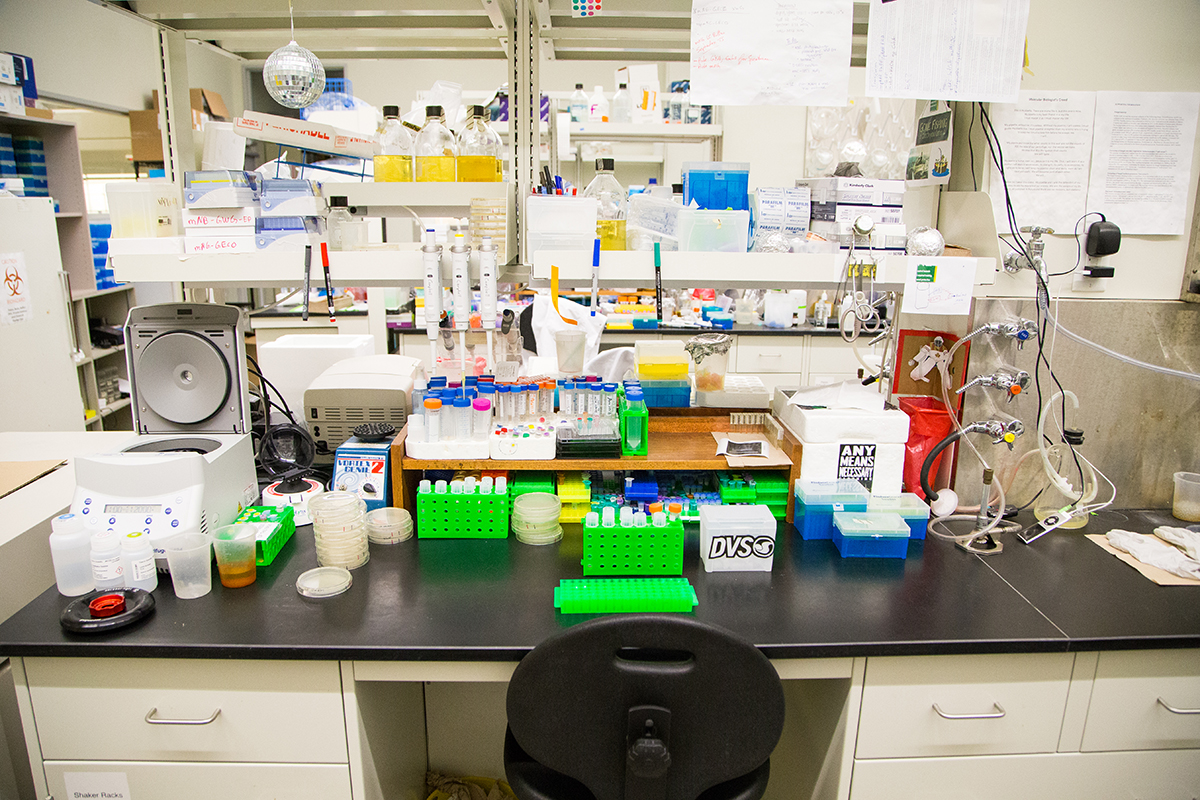 Joshua Storie
Joshua StorieAlberta’s government rolled out a number of COVID-19 restrictions on December 7, and in compliance with these orders, the University of Alberta has temporarily closed research labs.
As of December 14, the University of Alberta’s research labs have been shut down in response to provincial announcements. There was hope that labs would move into reduced capacity usage afterwards in the new year, but the earliest expected date of lab openings is now January 25.
The lab closures have evoked mixed reactions from graduate students and professors. While the university has offered exemptions to this complete closure for research that is time sensitive, the labs are still operating at a selective and extremely limited capacity.
For a vast number of researchers, there’s no possibility to work in the labs until they are open again. Graduate students and professors could be waiting for weeks before they are allowed back into the labs. Though the university shows some consideration for a few projects which fall under administrations exemptions, it doesn’t take into account the numerous other graduate student projects occurring.
For graduate students, this delay in research could equal a delay in thesis completion. During the pandemic, students are isolated and unable to access the usual range of research opportunities offered by the university. With the closure of research labs, this setback can easily create negative impacts on students’ mental health.
The Morneau Shepell monthly Mental Health Index indicated that Canadians’ mental health has suffered significantly in December, though mental health for the past nine months has been subpar. Additionally, the index reported that full-time students experienced a significant increase in mental stress in December in comparison to November.
When students are feeling isolated in the COVID-19 pandemic, their mental health suffers; lab closures can be bleak and contribute to a feeling of alienation. Furthermore, the university’s closure of labs can feel entirely unnecessary and aggravating.
The provincial government has not placed a specific restriction on universities that completely bars them from using their labs. In fact, other students in grades K-12 have already returned to in-person learning; they have been back to school since January 11. Retail stores can still operate at 15 per cent capacity. Other universities have not taken such drastic measures to close their research labs.
One example of a university that has not closed their research lab is the University of Calgary. Both the University of Calgary and University of Alberta are situated in Alberta, and thus follow the same provincial restrictions. Despite this, the University of Calgary continues to operate its labs at a reduced capacity. The University of Calgary is allowing more freedom for students who are “required to study on campus.” Although they both operate under the same provincial government, the universities are taking two different approaches to the new restrictions.
By comparing the two universities, it’s evident each of them have their own merit and prioritize different aspects of pandemic safety. While the University of Alberta is taking commendable extra steps to halt the spread of COVID-19 on campus, this is done at the expense of graduate students and professors’ research, which can lead to deteriorated states of mental health.
At the end of the day, the power to open the research labs lies entirely in the hands of the very people who implemented the closure to begin with. Not every project experiences the effect of this pandemic to the same extent; the situation for those affected by lab closures isn’t strictly black and white. The necessity of understanding students’ case-by-case issues is the foundation for ensuring graduate students and professors can feel heard even when the situation isn’t ideal.
Ideally, the university will balance feedback with their strict adherence to COVID-19 restrictions. Then, the extended closure of research labs can feel more like a compassionate choice, and less like a rash decision made without the consultation of affected parties.




